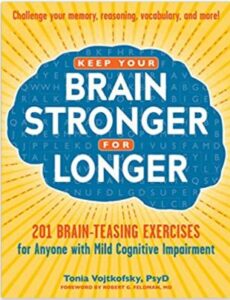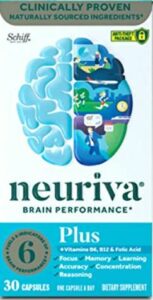The average American diet gets 57% of its daily calories from ultra-processed foods (UPF). That is not good news for either our physical or cognitive health. Ultra-processed food is tasty and convenient, but the positives end there.
A new study reveals that allowing ultra-processed foods to account for more than 20% of our daily calorie intake can contribute directly to cognitive decline.
For a person consuming 2,000 calories daily, in other words, a harmful amount of UPF would be anything over 400 calories per day. That’s less than a small order of French fries from that fast-food restaurant with golden arches.
Ultra-processed foods are already known to raise the risk of obesity, diabetes, cancer, heart and circulation problems, and even death. Now we can add cognitive decline to the mix.
Findings of the Study

In the study, male and female participants who ate the highest amounts of ultra-processed foods experienced a 28% faster global cognitive decline than those who consumed the lowest amounts of UPFs.
When assessing executive function, the comparative rate of decline was 25% faster in those with higher UPF consumption levels.
Presented at the 2022 Alzheimer’s Association International Conference, the study followed over 10,000 Brazilians for as long as a decade. A little over half were women, and the average age was 51. In Brazil, the average person consumes between 25-30% of their total calorie intake in the form of UPF.
Each study participant underwent cognitive testing at the beginning and end of the study. Testing included word recognition, immediate and delayed word recall, and verbal fluency.
Interestingly, the study participants with the highest levels of UPF consumption were non-smokers who drank little alcohol, had a good education, and earned a higher than average income. They were also predominantly white and on the younger end of the study group.
An earlier study of over 9,300 Americans across all demographic groups found that ultra-processed foods contribute 90% of the average person’s daily calorie intake of sugars.
On average, study authors found sugars contribute 21.1% of the calories consumed from ultra-processed foods, compared to 2.4% from moderately processed foods and 1.3% from minimally processed and unprocessed foods.
Recommended daily calorie consumption from sugars is no more than 10%. Over 82% of the study participants regularly exceeded this amount.
How UPFs Harm Cognitive Function

Industrially-manufactured, pre-packaged soups and sauces, ready-to-eat meals, frozen pizza, hot dogs, sodas, cookies, chocolate, chips, doughnuts, and similarly ultra-processed foods are now thought to harm brain areas involved specifically in executive functioning.
Executive functioning is the ability to process information and make decisions.
The key problem with UPF is that it contains high levels of salt, sugar, and fat. All three of these increase systemic inflammation, one of the biggest threats to healthy aging.
In addition, ultra-processed foods contain substantial amounts of artificial colors and flavors, emulsifiers, stabilizing agents, and preservatives.
UPF consumption is on the rise, particularly among Americans aged 60-plus. Over the past 20 years, people in this age group have transitioned from consuming primarily whole and unprocessed foods to consuming mostly ultra-processed foods.
Preventing Cognitive Decline

With all the assaults on our cognitive health from ultra-processed food, what can we do to help slow down the speed of cognitive decline? Here are some recommendations from the experts.
Exercise
Exercise has many health benefits. It lowers breast and colon cancer risk, prevents heart disease and diabetes, and relieves insomnia, anxiety, and depression. Exercise also helps delay cognitive decline and can even improve executive functioning in people already showing symptoms of cognitive decline.
Mediterranean-Style Diet

The Mediterranean diet has been long recognized for promoting good heart health, lowering cancer risk, and preventing cognitive decline and dementia. This eating style emphasizes vegetables, whole grains, beans, nuts, seeds, fruits, olive oil, and moderate amounts of poultry, fish, and dairy products. Red meat is consumed only in limited quantities.
Alcohol Consumption
Alcohol consumption should be restricted to one drink per day. Studies previously published in the Journal of the American Medical Society (JAMA) reported that heavy drinking sparked a 22% higher incidence of Alzheimer’s disease compared to not drinking alcohol at all. Heavy drinking was defined as consuming more than seven drinks per week for a woman or 14 per week for men.
Sleep Duration and Quality
The human body needs a certain amount of regular sleep to carry out its essential functions. Studies have shown that those who routinely sleep less than seven to eight hours a night score lower on mental function tests. This is thought to be because learning and memories consolidate while we are asleep.
Mental Stimulation

Educational level is less critical to healthy cognitive function as we age than staying mentally active. People in their 70s and 80s who frequently read, write, work puzzles, play board and card games engage in group discussions, and play music are half as likely to develop mild cognitive impairment compared to those who don’t regularly participate in these activities.
Social Contacts
Social interaction can have profound effects on longevity and cognitive health. Research shows that people who participate in frequent social interactions are less likely to experience cognitive decline than those who don’t. A strong network of people who care about you and support you lowers stress levels, decreases depression, and helps prevent loneliness – all of which are thought to speed up cognitive decline.
Takeaways
- Consuming more than 20% of your daily calorie intake in the form of ultra-processed foods (UPF) can speed up the rate of cognitive decline. By contrast, the typical American diet gets up to 58% of its daily calories from UPF.
- Reducing consumption of ultra-processed foods can prevent cognitive decline and lower your risk of dementia.
- UPF contains high levels of salt, sugar, and fat. All can increase systemic inflammation, one of the biggest threats to healthy aging in the brain and other body parts.
- Ways to help prevent cognitive decline include regular exercise, a Mediterranean-style diet, low alcohol consumption, adequate sleep, regular mental stimulation, and frequent social interaction.
Fun Ways to Stay Sharp
Supplements for Your Brain

Read Next:
What You Need To Know About the Keto Diet For Women Over 50











